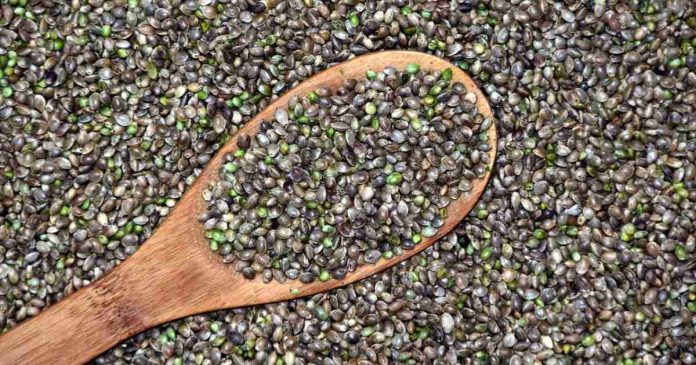New York’s Cornell University will soon be an important hub for genetic analysis and research related to industrial hemp.
A seed bank is a facility where seeds of a plant species are put into long-term storage for the purposes of preserving genetic diversity and strains that have particular attributes; such as drought resistance or pest tolerance.
As industrial hemp activity ramps up across the world, it’s important to not only keep seeds from heritage strains, but those that follow. While the number of industrial hemp strains is anyone’s guess, some varieties are developed for fibre, others for food and others for their medicinal potential – particularly for cannabidiol (CBD).
Late last week, Senator Charles Schumer announced $500,000 in federal funding for the U.S. Department of Agriculture’s Agriculture Research Service (USDA-ARS) to establish the USA’s first industrial hemp seed bank to be co-located at the Plant Genetic Resources Unit (PGRU) at Cornell AgriTech in Geneva, New York.
If the Senator’s name sounds familiar, that’s likely because he played an important role supporting the Hemp Farming Act of 2018 that legalised the crop as an agricultural commodity at a federal level and removed it from the federal list of controlled substances. The Hemp Farming Act was signed into law by President Donald Trump in December last year as part of the 2018 Farm Bill.
Senator Schumer said he fought “tooth and nail” to secure the funding for the seed bank.
“Not only will this facility act as the United States’ only industrial hemp seed bank, but it will also allow the world-class agricultural scientists at Cornell to help boost industrial hemp entrepreneurship,” stated the Senator last week.
The USA once had an industrial hemp seed bank, but it was destroyed when hemp was lumped in with marijuana and became a Schedule I substance; an incredible waste of important hemp heritage.
Cornell sees its role as very important for the future of New York State’s hemp sector.
“The hemp seed bank and the research potential it gives our Cornell and USDA-ARS scientists will be vital resources for New York state farmers,” said Cornell’s College of Agriculture and Life Sciences’ Kathryn J. Boor.
It won’t be just New York farmers who will benefit – resources developed at the seed bank will enable growers throughout the nation to breed varieties suited to local growing conditions.


